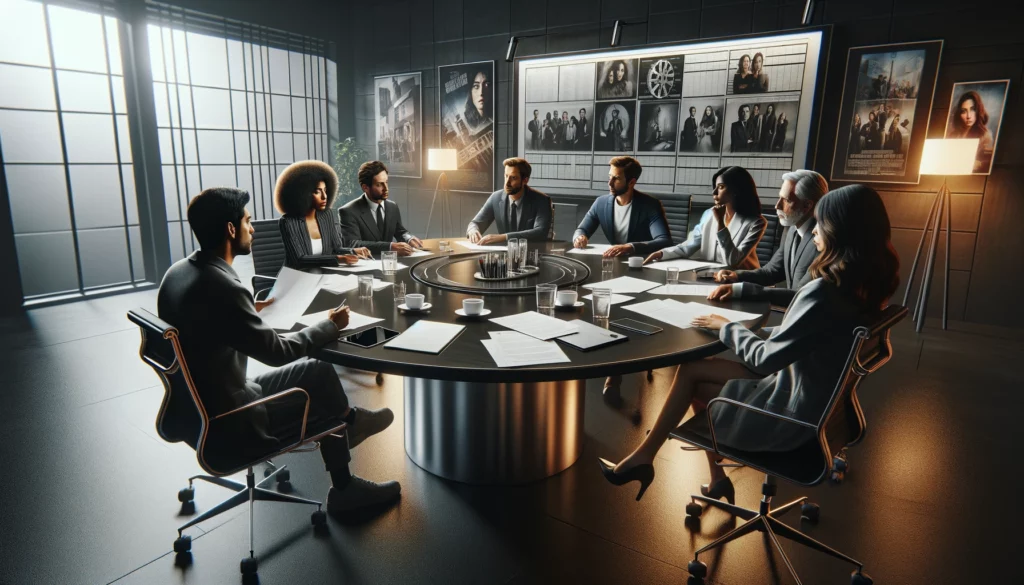Latest Video Explainer from Legit Podcast Pro
Follow Legit Podcast Pro wherever you get your podcasts!
Follow Legit Podcast Pro wherever you get your podcasts!The Federal Trade Commission (FTC) recently banned most non-compete agreements, impacting how businesses operate across the board. This is particularly interesting for media, entertainment, and online industries known for their talent mobility and creative collaborations.
What's Changing?
Previously, non-compete agreements restricted employees from working for competitors for a certain period after leaving. The FTC's rule prohibits employers from enforcing these agreements for almost all workers, with a narrow exception for senior executives. This means employees can more freely switch jobs or even launch their own ventures without legal repercussions.
Potential Impacts
Uncertainties Remain
While the ban is a significant change, some uncertainties linger. How will companies protect trade secrets and confidential information? What will the impact be on long-term training programs offered by employers? These questions might lead to further legal clarifications and adjustments in the coming months.
Overall, the FTC's ban on non-compete agreements is likely to reshape the talent landscape in media, entertainment, and online businesses. Increased talent mobility, evolving employer-employee dynamics, and a potential boost for innovation are some of the anticipated outcomes. As the dust settles, we'll see how these industries adapt and thrive in this new environment.
In the glamorous world of entertainment, the focus is often on creativity, star power, and the end product. However, the backbone of any successful entertainment project isn't found in the spotlight—it's in the mundane yet crucial early stage of establishing clear agreements. These agreements are not merely paperwork; they are the foundational elements that ensure a project runs smoothly from inception to completion.

Why Clear Agreements Matter
Clear agreements are vital in laying down the rules of engagement for all parties involved in a project. They serve as comprehensive blueprints that include budget, schedule, roles, and responsibilities, and they define how profits will be shared and intellectual property rights will be handled. This level of detail is crucial in preventing misunderstandings and disputes that could derail a project. For instance, in a typical film production, clear contractual agreements are essential for securing rights to a script, hiring actors, and managing the expectations of crew members. These contracts make sure everyone knows what is expected of them and what they can expect from others, which in turn helps to focus energies on creative outputs rather than legal disputes.
Building a Secure and Creative Environment
By setting clear terms from the get-go, these agreements also foster a secure environment for creativity. Artists and creatives can perform their best when they are not bogged down by uncertainties about compensation, credit, or copyright. Moreover, these agreements protect the legal rights of everyone involved, allowing them to invest fully in the project with confidence that their contributions will be recognized and rewarded accordingly.
Sustaining Professional Relationships
In the entertainment industry, where many jobs are secured through networking and word-of-mouth, maintaining professional relationships is key. Clear agreements help in preserving these relationships by providing a straightforward mechanism for resolving conflicts. If disputes arise, well-drafted agreements offer clear pathways to resolution, often without the need for contentious legal battles. Thus, they not only save time and money but also protect reputations and professional relationships, which are often more valuable than any single project.
Conclusion
In conclusion, while they might not be as exciting as the creative aspects of entertainment projects, clear agreements are indispensable. They ensure that all project participants can focus on what they do best, secure in the knowledge that their legal and financial interests are protected. So, before you jump into your next creative venture, take a moment to ensure that your legal groundwork is as solid as your creative vision.
For more insights into navigating the complexities of entertainment law and ensuring your projects start off on the right foot, subscribe to our updates.

Music can define a film, evoking emotions and enhancing narratives. However, the legal complexities surrounding music rights are a landscape fraught with pitfalls that filmmakers often underestimate. Here’s a deep dive into the hard lessons about using music in films, complete with real-life examples and case law. 1. Music Licensing Can Be Costly Securing the… Continue Reading
What a pleasure it was to join Host Leah Rae Getts to talk about the legal side of online business, media, courses, etc. Check out this episode, and let me know in comments or via email if you have questions. Prefer audio? Apple: https://podcasts.apple.com/us/podcast/digital-trailblazer-podcast/id1717325062 Spotify: https://open.spotify.com/show/2krxAi7r6e2teFmNFoKDG5?si=4ccb1f7022f24eb4 Continue Reading

In the ever-evolving world of podcasting, where the lines between content creation and legal obligations often blur, understanding the intricacies of disclaimers and disclosures becomes paramount. Whether you’re a seasoned podcaster or just starting out, the content you produce carries with it certain responsibilities—not just to your audience, but also in the eyes of the… Continue Reading
Join Gordon Firemark and Tamara Bennett in episode 165 of the Entertainment Law Update podcast as they provide detailed analysis and commentary on various legal and business news stories. The episode covers a range of cases, from Alec Baldwin’s indictment in the Rust movie shooting to copyright disputes over AI-generated content. Highlights include discussions on… Continue Reading
Scams are nothing new for trademark applicants and registrants. Because the application is a public-record, it’s quite easy for anyone to identify those who’ve recently filed or received office actions and target them. There are two new(ish) scams that have started showing up that are worth warning you about so you don’t wind up a… Continue Reading
#BusinessEntity #Entrepreneurship #StartUpGuide #BusinessStructure #LLCvsCorporation #SCorpBenefits #LegalGuide #BusinessGrowth #TaxTipsForBusiness #InformedDecisionMaking Contact us by visiting https://firemark.com NOTE: AI Tools were used to outline, script and assemble this video. Continue Reading
Navigating the Corporate Transparency Act for Small Businesses and Legal Entities The Corporate Transparency Act (CTA) is a pivotal piece of legislation that impacts many small businesses with LLC or corporation structures, among others. Enacted as part of the National Defense Authorization Act for fiscal year 2021, the CTA aims to enhance transparency and combat… Continue Reading
Last week, I attended the UTCLE/Texas Entertainment & Sports Law Association’s 33rd annual Entertainment Law Initiative. On Thursday, I was honored to be recognized as the 2023 recipient of the Texas Entertainment and Sports Law association’s Texas Star Award for achievements in and contributions to the field of Entertainment Law. Better still, I was thrilled… Continue Reading
View our Privacy Policy and Terms of Use